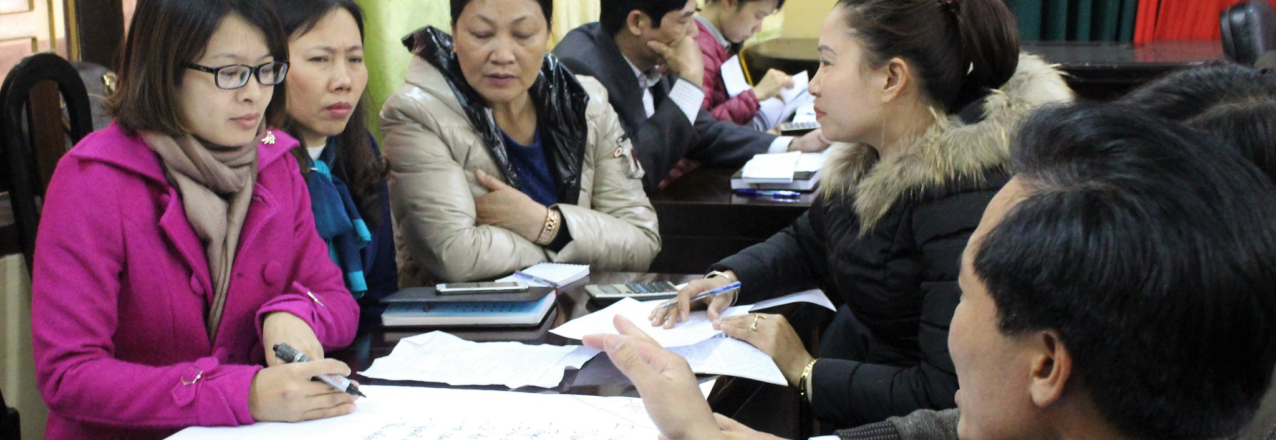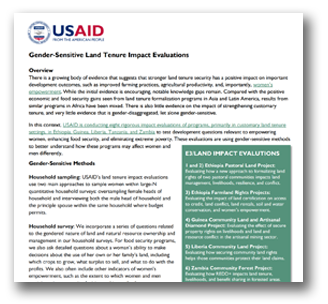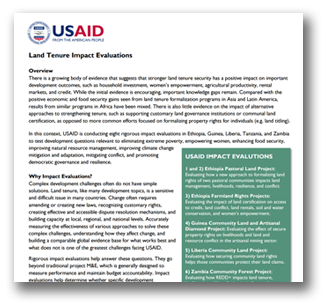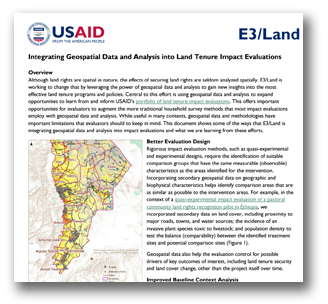There is a growing body of evidence that suggests that stronger land tenure security has a positive impact on important development outcomes, such as household investment, women’s empowerment, agricultural productivity, rental markets, and credit.
While the initial evidence is encouraging, important knowledge gaps remain. Compared with the positive economic and food security gains seen from land tenure formalization programs in Asia and Latin America, results from similar programs in Africa have been mixed. There is also little evidence on the impact of alternative approaches to strengthening tenure, such as supporting customary land governance institutions or communal land certification, as opposed to more common efforts focused on formalizing property rights for individuals (e.g. land titling).
In this context, USAID is conducting eight rigorous impact evaluations in Ethiopia, Guinea, Liberia, Tanzania, and Zambia to test development questions relevant to eliminating extreme poverty, empowering women, enhancing food security, improving natural resource management, improving climate change mitigation and adaptation, mitigating conflict, and promoting democratic governance and resilience.
Approach and Methods
Impact Evaluations & Gender
There is a growing body of evidence that suggests that stronger land tenure security has a positive impact on important development outcomes, such as improved farming practices, agricultural productivity, and, importantly, women’s empowerment. While the initial evidence is encouraging, notable knowledge gaps remain. Learn more »Current Land Tenure Impact Evaluations
USAID is conducting eight rigorous impact evaluations in Ethiopia, Guinea, Liberia, Tanzania, and Zambia to test development questions relevant to eliminating extreme poverty, empowering women, enhancing food security, improving natural resource management, improving climate change mitigation and adaptation, mitigating conflict, and promoting democratic governance and resilience. Learn more »Impact Evaluations & Geospatial Data
Although land rights are spatial in nature, the effects of securing land rights are seldom analyzed spatially. USAID is working to change that by leveraging the power of geospatial data and analysis to gain new insights into the most effective land tenure programs and policies. Central to this effort is using geospatial data and analysis to expand opportunities to learn from and inform USAID’s portfolio of land tenure impact evaluations. Learn more »All data sets, documentation, summary reports, and tools for data collection used in evaluations of our land tenure programs are provided here. These third-party evaluations are used to measure the impact of our development efforts and to foster learning and evidence-based decision making. These evaluations were designed in accordance with best practices set forth in USAID’s Evaluation Policy. This information is being made publicly available here as part of USAID’s commitment to transparency, accountability, and Open Data. We encourage researchers, governments, practitioners and others to access and use this information in accordance with the terms of use.





